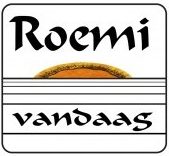It is widely acknowledged in the literary world today: Rumi is one of the most popular poets in the English speaking western world. Perhaps this is because of his universal appeal to the hearts of people of all faiths. His poetry expresses a deeply mystical, ecstatic and accessible spirituality that has its roots in a love that is both human and divine. Perhaps less known of Rumi’s poetry is that it is a coherent body of spiritual teachings that can instruct us on what it means to be a true human being, and how to bring that into practice. For Rumi, an important aspect of life is to learn to know the divine and to be immersed in love. Completely enraptured by the beautiful countenance of the divine, Rumi’s poetry is a pointer to the truth that God is love, lover and the Beloved. Rumi invites us to quench our thirst and to satisfy our hunger with a regular diet of inspiration and spirituality.
As humanity today is constantly on the go, one could wonder if these movements are progressing in a forward direction, or if they are mere aimless wanderings through the maze of a materialistic life that is devoid of ideals and values. What lies embedded within the beautiful and inspiring poems is a coherently meaningful message.
Rumi addresses us implicitly and explicitly with such essential questions as:
- What is the purpose of human life?
- How can we discern what is Real?
- What is truly of value and worth, and how do we connect with this?
Rumi’s poetry is like a beautifully strung necklace, threading together diverse stories, teachings, ecstatic prayers, metaphors and reflections. It can be as relevant for us today as it was for seekers of truth in the thirteenth century, for it is a map guiding us on a path back to the Source of love itself. For Rumi, human beings enter into life in the world and forget that the core of one’s being is love itself. Only those who care to, will enter into a process of awakening to this truth.
Concerning this, Rumi explains:
Your true substance is concealed in falsehood,
like the taste of butter in buttermilk.
Your falsehood is this perishable body;
your truth is that exalted spirit.
For many years, this buttermilk of the body,
is visible and manifest, while the butter, which is the spirit,
is perishing and ignored within it—
until God sends a prophet, a chosen servant,
a shaker of the buttermilk in the churn,
who skillfully shakes it, so that you might know
your true self which was hidden.Essentially, Rumi’s poems are teachings that can guide one on the path of awakening and transformation, which form the basis of Sufi mysticism. It is a way of orienting the heart towards beauty and healing, of liberating the spirit, and of opening to intimacy in relationships. There are subsequent levels, which are addressed in this:
- Transformation of the illusory sense of self, or ego identity;
- Purification of the heart from impressions that keep us captive to the past;
- The raising and upliftment of spirit, that gives freedom and bliss.
For the Sufis, the journey on the mystical path, is best accompanied by a spiritual guide. The journey itself is called Sair-o-Suluk (which means wayfaring, navigating on the spiritual path). But an important part of the journey in Sufism, is our encounter with the different stages along the way. The traveller learns to recognize how both the inner spiritual process of journeying is connected with the outer experience of one’s behavior, perceptions and actions.
There are many passages in Rumi’s Masnavi about the journey. He says: it’s not easy to discover what to bring along, if we don’t remember our “source.” His poetic verses are like signposts that remind us that the path is also full of pitfalls. We are able to escape the cage of the egoic self in our remembrance of the indwelling Spirit within all of us.
Rumi’s Masnavi has similar parallels to ‘Attars Mantiq ut-Tayr (The Conference of the Birds). Both are maps for traveling troubadours on the inner path. In his work, Rumi elucidates the various levels of the self and the stages of the heart. Further, there are various stages of certainty, which includes Knowing Certainty from hearsay (‘ilm al-yaqīn), Seeing with the Eye of Certainty (ayn al-yaqīn) and Living from the truth of Certainty (haqq al-yaqīn).
In his Mantiq ut-Tayr (The Council of the Birds), Attar has mapped the spiritual path by using the imagery of the Seven Valleys: 1. The Valley of Quest, 2. The Valley of Love, 3. The Valley of Knowledge, 4. The Valley of Independence from Everything, except the Beloved, 5. The Valley of Unity, 6. The Valley of Wonderment, 7. The Valley of Poverty and Nothingness.
This introduction was given on September 11, 2020 by Sipko A. den Boer at the Gaudeamus event “The Rumi cycle”, a set of 7 songs composed by the young composer Amin Ebrahimi, based on Attar’s 7 stages of spiritual journey. Parallels can to be found in Rumi’s book the Masnawi. The music was performed by pianist Jabiz Hafizi and bariton singer Arash Roozbehi
